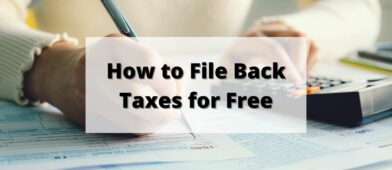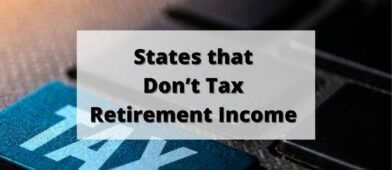A few years ago, my friend won the Masters Tournament ticket lottery. Given how much demand there is for one of the most prestigious PGA golf tournaments, you have to enter a ticket lottery to get a chance to buy tickets to the week-long event.
My friend won the right to purchase four tickets to Wednesday’s practice session. That’s the best practice session to go to because it’s also the day of the fun Par 3 Contest.
The event is so widely attended that people will rent out their homes to tourists just for that week. Imagine locking up all your stuff just so you can rent out your home to a stranger for a couple of days — it’s that lucrative.
As it turns out, not only is the rent really high but you might not have to pay taxes on it. It’s known as the Masters Rule or Augusta Rule, the name of the city where the Masters Tournament is held.
Table of Contents
The Augusta Rule and Rental Income
If you rent out your personal residence for 14 or fewer days a year, you do not have to pay taxes on this income. It’s in Section 280A(g) of the tax code, “Disallowance of certain expenses in connection with business use of home, rental of vacation homes, etc.”
The specific section says:
(g) Special rule for certain rental use
Notwithstanding any other provision of this section or section 183, if a dwelling unit is used during the taxable year by the taxpayer as a residence and such dwelling unit is actually rented for less than 15 days during the taxable year, then—
(1) no deduction otherwise allowable under this chapter because of the rental use of such dwelling unit shall be allowed, and
(2) the income derived from such use for the taxable year shall not be included in the gross income of such taxpayer under section 61.
The special rule is extremely useful.
This must not be a full-time rental property and you can rent it up to 14 days a year without having to pay any taxes on the income. The days don’t have to be consecutive.
If you rent it for a 15th day? Boom — taxes are due for all the days.
But here’s the kicker — it doesn’t matter how much rental income you bring in! The advantage of the Augusta Rule is there is no cap on the amount of income. So if you happen to live near a major sporting event (such as the Annual Masters Golf Tournament), you could earn thousands of dollars without having to pay a penny in tax.
You can also check out Topic no. 415, Renting residential and vacation property from the IRS. In the section titled “Minimal Rental Use,” they succinctly explain the Augusta Rule: “There’s a special rule if you use a dwelling unit as a residence and rent it for fewer than 15 days. In this case, don’t report any of the rental income and don’t deduct any expenses as rental expenses.”
Important Note About the Augusta Rule
There is one “catch” to the Augusta Rule. You can’t claim the expenses as any kind of tax deduction related to the rental. But since you aren’t paying tax on the income, it makes sense that you can’t “double dip” by claiming the expenses incurred as a result.
You also have to make sure it’s rented for a reasonable amount, especially if you rent it to yourself (for example, if you own your own business and host business meetings there — more on that later).
Be Aware of Local Tax Laws & Rules
The income is not subject to federal income taxes under the Augusta Rule but your state and local government may have a tax. Since you are renting out your home for a short period, you may also have to pay a hotel or lodging tax.
Airbnb has a lot of good resources that can get you up to speed on local laws.
For example, let’s take a look at occupancy tax collection in Maryland (my home state). While I might not owe income taxes for the rental, I may owe a state sales tax to Maryland. If my home were in Baltimore County, I’d have to pay a “Transient Occupancy Tax” of 9.5%.
Also, be aware of local rules and restrictions on this type of rental.
It’s important to know the local laws because some places are a bit stricter about it.
How to Earn Tax-Free Rental Income Under the Augusta Rule
I have a friend who lived in a very trendy part of San Diego and would rent out his apartment on Airbnb during high-demand periods.
During those days, he’d put his stuff into a locked closet and crash on a friend’s couch to collect some hefty short-term rent. He was probably running afoul of some subleasing agreement rules (he was renting his apartment at the time), but at least the rental income was tax-free!
If you decide to rent out your own home, just be sure to meet the criteria to keep it tax-free:
- The property is your primary residence.
- You don’t rent it out for more than 14 days total during the tax year.
- You don’t claim any expenses or tax deduction from renting it out.
- You don’t violate any local laws or rules regarding short-term rentals (including subleasing agreements if you’re a renter).
- You’re prepared to pay any state or local taxes that you may owe as a result.
So, no, the Augusta Rule doesn’t apply if it’s your vacation home that you only stay in part of the year and rent out for the rest of it, or if you rent it out for even just one day over the 14-day annual limit.
Using the Augusta Rule as a Business Owner
If you’re a business owner, you could use the Augusta Rule to rent your personal residence to your business for large events or other gatherings. However, if you do this, you are inviting scrutiny so be sure you can document the attendees and the business purpose to prove it is a legitimate business expense. And make sure that the rent you pay yourself is reasonable and fair market value.
To know if it is a reasonable rental rate, find out how much it would cost to hold the same event at a local restaurant or hotel. For example, if it’s an outdoor corporate barbecue, you can see how much it would cost to rent a local venue suitable for an event of that nature.
Those quotes will be part of your documentation for expenses related to your business in case someone asks.
How to Claim the Augusta Rule as Tax-Free Income
You want to make sure you have all of your documentation but the Augusta Rule is an income exclusion — meaning you simply don’t report the rental revenue. It’s as if it never happened.
This kind of tax-free income is not uncommon. Whenever you sell a home, you do the same for any gains up to $250,000 ($500,000 for couples). If you qualify for the home sale tax exclusion, you simply don’t include it on your tax return if you’re under the exclusion amount.
Much like the home sale tax exclusion, the Augusta Rule has no income restrictions.
The Bottom Line on the Augusta Rule
If you’re a property owner, the Augusta Rule can be a valuable tax strategy for earning a bit of short-term rental income, completely tax-free. Just remember that there are strict rules, such as not renting it out for longer than 14 days, and that the property is your primary residence.
If you’re a business owner, you can also use the Augusta Rule by hosting meetings or other business events in your home. Again, just make sure you keep everything on the up and up, such as by ensuring the rent you’re paying to yourself is fair market and that you keep all documentation to prove it as a legitimate business expense.




JimiMae says
I enjoy Mr Wang articles. The simplicity of the articles explanation has kept me interested and had advanced me into the Financial knowledge that I never thought that I would be part of. He is personable as well as accountable. Each time that I ask a question or make a comment he responds in a timely matter.
I appreciate the guidance .
Have a great day!!
Thanks JimiMae, I do what I can!
Lazy Man and Money says
Living in Newport, RI there’s a high demand in the summer. People rent their houses out for around $20,000 a month. We’re thinking of doing this when my wife retires and using the time to travel.
Unfortunately, this Augusta Rule isn’t going to apply – we would be gone too long. Also, it’s a lot of work to pack up all our stuff only to unpack it 14 days later.
$20,000 a month is a lot of money, I think I’d be willing to pack up my pictures for that much. 🙂
Caroline Beasley says
There are many instances where a taxpayer would be required to report a primary residence home sale on their tax return, even if they qualify for the exclusion! Be careful!